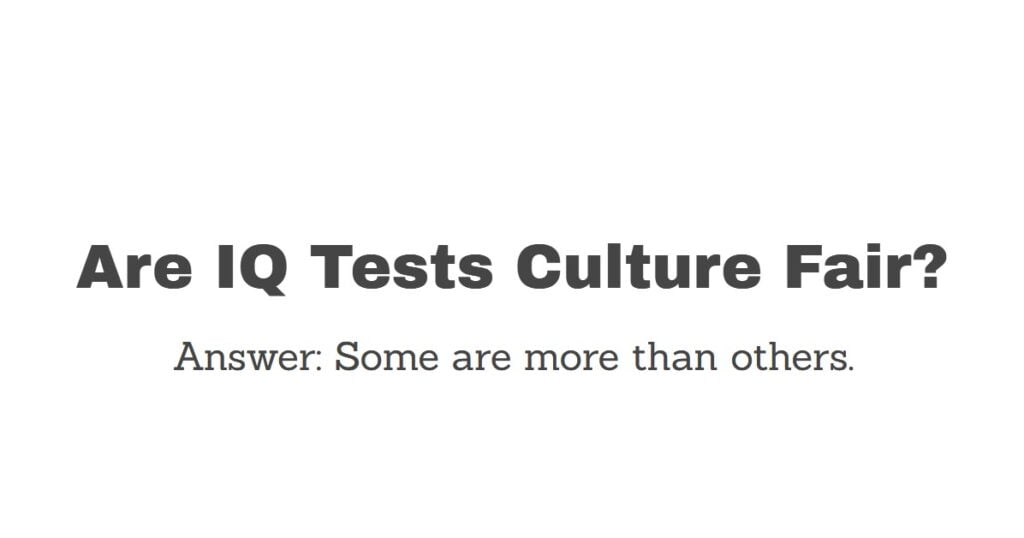a) An individual’s IQ score does not change from one testing to another.
b) All IQ tests are culturally biased to a certain extent.c) The older the child, the less validity and reliability the test has.d) IQ tests are ideal for assessing a person’s ability to function in society.

b) The scientific consensus is that Raven’s Progressive Matrixes is a fairly culture-fair IQ test. It requires no reading, writing, or language skills. But a scientist cannot say that it is entirely unbiased by the culture of the researcher. Possibly there are nuances that the researcher is not aware of.
a) IQ is a relatively stable construct, even over 60 years. 1 It does not change meaningfully within weeks unless some kind of pathology intervenes. But it does change during a lifetime depending on a person’s developmental stage. A retest can vary more for children because they develop faster than adults. A week for a child is a much more meaningful time than a week for an adult. 2
c) The older the child the more valid and reliable the test becomes. 2 Because the importance of genes grows and the importance of the environment decreases.
d) IQ tests are not ideal for assessing a person’s ability to function in society. Emphasis on the word “ideal”. It’s definitely not perfect, but it is one of the best, quickest and cheapest ways we have available.
Sources
- Deary, I. J. (2001). Intelligence: A very short introduction. Oxford: Oxford University Press.
- Mõttus, R., Allik, J., & Realo, A. (2011). Intelligentsuse psühholoogia.